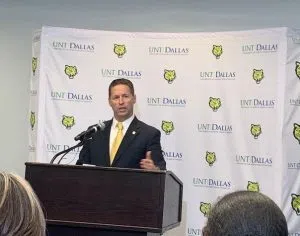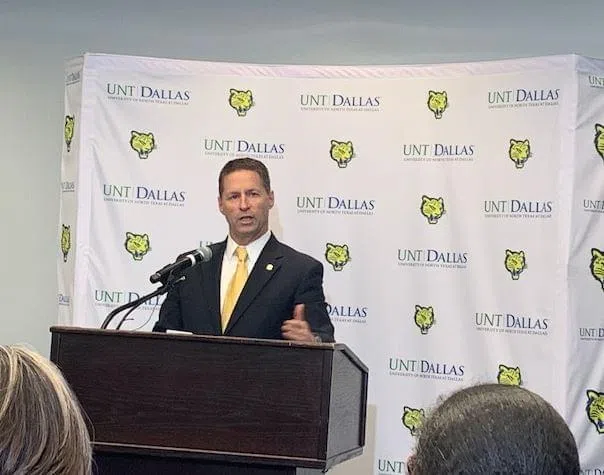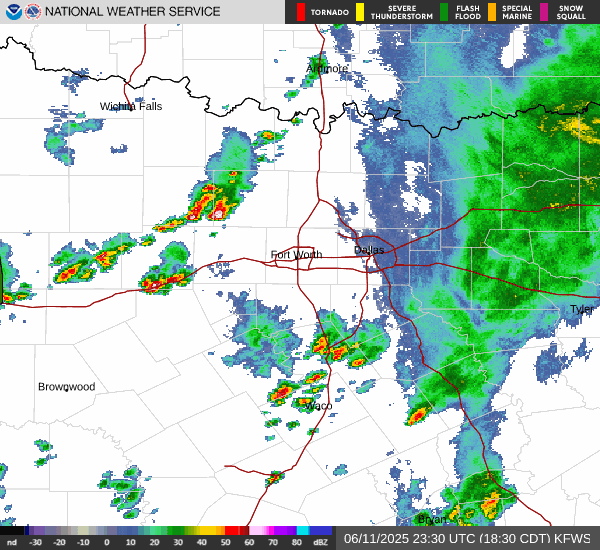 DALLAS (WBAP/KLIF)- UNT Dallas and Meadows Mental Health Policy Institute (MMHPI) have united to transform the Caruth Police Institute (CPI) into one of the premier police training, policy analysis, technical assistance and research organizations in Texas and nationally. Bob Mong president of UNT Dallas says it will improve public safety with the help from an 18-person executive advisory board made up of police chiefs across the state. “This will expand best practice training, build a strong research arm, develop better policy analysis and provide expanded technical analysis to police agencies around the state,” he said.
DALLAS (WBAP/KLIF)- UNT Dallas and Meadows Mental Health Policy Institute (MMHPI) have united to transform the Caruth Police Institute (CPI) into one of the premier police training, policy analysis, technical assistance and research organizations in Texas and nationally. Bob Mong president of UNT Dallas says it will improve public safety with the help from an 18-person executive advisory board made up of police chiefs across the state. “This will expand best practice training, build a strong research arm, develop better policy analysis and provide expanded technical analysis to police agencies around the state,” he said.
The board is chaired by Irving Police Chief Jeff Spivey and also includes Dallas Police Chief U. Renee Hall, Dallas Assistant Police Chief David Pughes, Arlington Police Chief Will Johnson, Garland Police Chief Jeff Bryan, Carrollton Police Chief Derick Miller, as well as chiefs from Austin, Abilene, Sherman, Rockport, Odessa and Willow Park. “As we come together to share our thoughts to share our experiences and knowledge on policing and what policing should look like in 2020 and beyond,” said Spivey.
CPI’s new leadership will provide solutions to the most complex and pressing issues facing police departments today, such as increasing police workforce,addressing the opioid crisis on the front lines and reducing police suicides.
“First responders are more likely to die by suicide than in the line of duty… To date in 2019, there has been 17 police officers commit suicide in the state of Texas,” said Spivey. “There’s no state-wide coordinated effort to end police suicides in Texas the Caruth institute would like to change that,” he said. Spivey said one of their primary focus areas is on officer wellness and safety by ending suicides with the implementation of a the Texas First Responder Peer Network. “The network will be grounded with 6 regional law enforcement agency hubs across the state with UNT Dallas and Caruth serving as the administration training agencies,” he said.
The hubs will serve as network drivers collaborating with law enforcement and fire response agencies to recruit and train peers in trauma informed peer to peer response techniques. These will be confidential peer services and will be available to any law enforcement in that region at no cost.
“This seems like a lofty goal to fulfill in our first year, but we owe it to the men and women in law enforcement and Fire/EMS to do all we can to end first responder suicide,” Spivey said.












